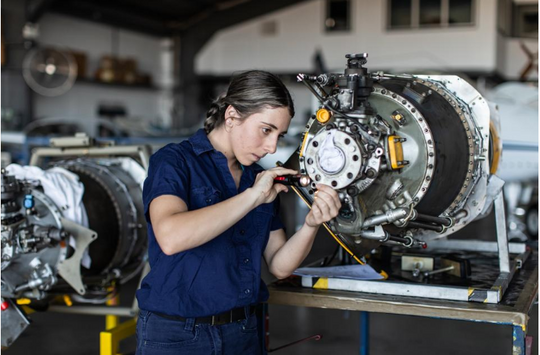Alerts

For years, the future of work conversation centered on office jobs and white-collar careers. But as automation, energy transition, and infrastructure expansion reshape industries, the blue collar workforce is emerging as the new growth engine. In the U.S. alone, one in four workers is in a blue-collar role—and demand is surging across manufacturing, logistics, and renewable energy sectors. The question is no longer if these jobs matter, but how we can build a sustainable future around them.
Across advanced economies, employers are facing a severe shortage of skilled hands. By 2033, over 1.9 million U.S. manufacturing jobs could go unfilled. In Europe, transportation and warehousing are also hitting crisis levels. The reason? Many of these jobs require physical agility, complex problem-solving, and on-site judgment—capabilities AI can’t easily replicate. The blue collar workforce is becoming more tech-enabled, not replaced by technology. Workers now oversee robotics systems, interpret data, and operate augmented-reality tools on the job site.
Forget the fear narrative—automation is amplifying human potential. Industrial robots and digital systems are transforming how tradespeople work, boosting safety and productivity. Over 73% of blue-collar workers now see AI as a positive force in their industry. When properly trained, they report higher engagement and better job quality. The result is a smarter blue collar workforce—people doing high-value, variable work while machines handle repetitive or dangerous tasks.
Q: Why is the blue collar workforce more important than ever?
A: Because the global economy depends on skilled trades to drive infrastructure, manufacturing, and clean energy growth.
Q: Can automation replace blue collar workers?
A: Not entirely. Technology augments human skills but still relies on human oversight, adaptability, and decision-making.
Q: How can leaders attract the next generation of blue collar talent?
A: By building skills-first pathways, partnering with vocational programs, and rebranding the trades as modern, tech-driven careers.
Final Thought:
The blue collar workforce isn’t a relic of the past—it’s the backbone of the future. As leaders invest in skills, technology, and inclusive career pathways, they aren’t just filling jobs—they’re building the foundation for a stronger, more resilient global economy.
𝗦𝗲𝗺𝗮𝘀𝗼𝗰𝗶𝗮𝗹 𝗶𝘀 𝘄𝗵𝗲𝗿𝗲 𝗿𝗲𝗮𝗹 𝗽𝗲𝗼𝗽𝗹𝗲 𝗰𝗼𝗻𝗻𝗲𝗰𝘁, 𝗴𝗿𝗼𝘄, 𝗮𝗻𝗱 𝗯𝗲𝗹𝗼𝗻𝗴. We’re more than just a social platform — from jobs and blogs to events and daily chats, we bring people and ideas together in one simple, meaningful space.